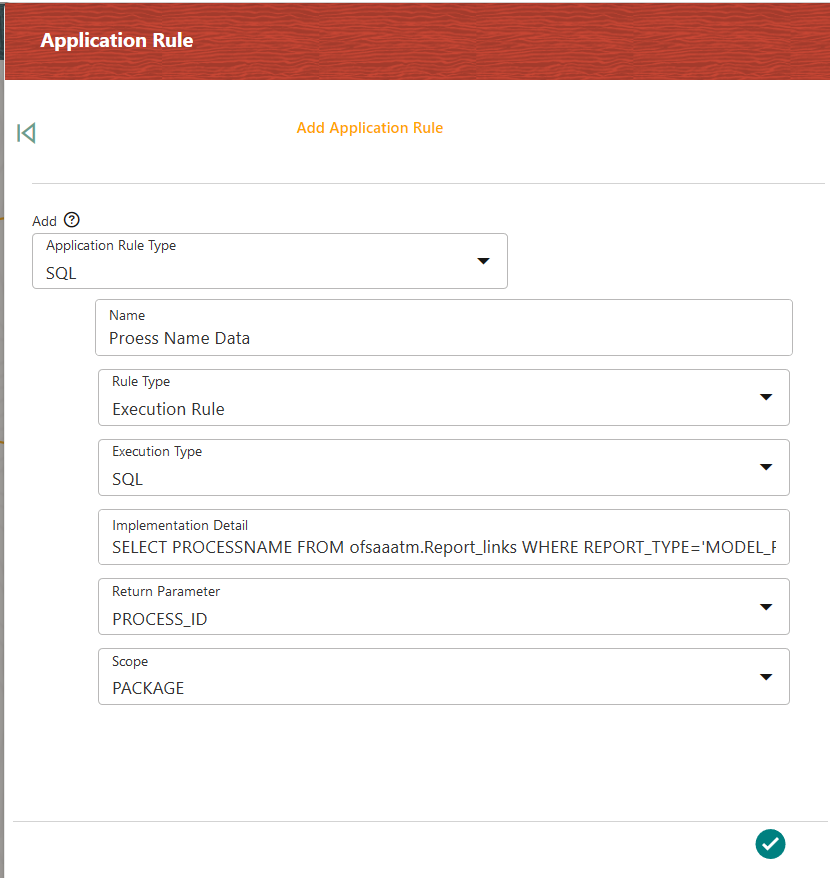SQL Application Rule
This Application Rule is used to execute any SQL queries in the Process Flow.

Figure 4-6 Add SQL Application Rule Details window

Table 4-2 SQL Application Rule Details Description
| Field Name | Description |
|---|---|
| Application Rule Type | Select SQL as the Application Rule Type from the drop-down list. |
| Name | Enter a unique name for the SQL Application Rule. |
| Rule Type | Select the Rule Type from the drop-down list. The SQL Application Rule can be used as a Decision Rule, Execution Rule, or Selection Rule based on your requirement. |
| Execution Type | Displays the Application Execution Type as SQL. |
| Implementation Detail |
|
| Return Parameter |
Select the Data Field that receives the return parameter of the SQL Rule, from the drop-down list.
|
| Scope | Select the Scope as Process to use the Application Rule only in the current process or Package to use the Application Rule across all the processes in the package. |